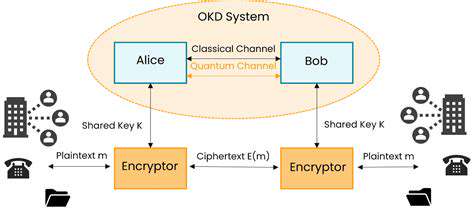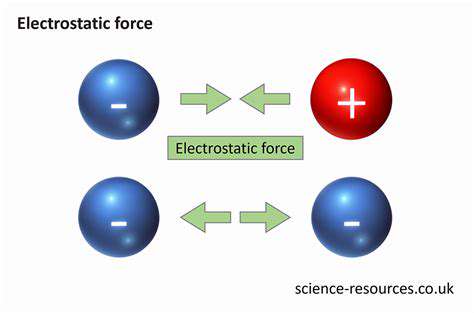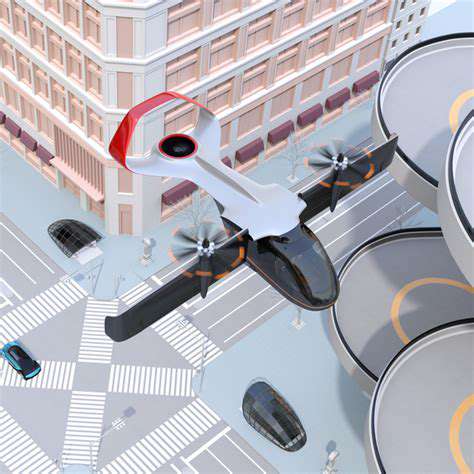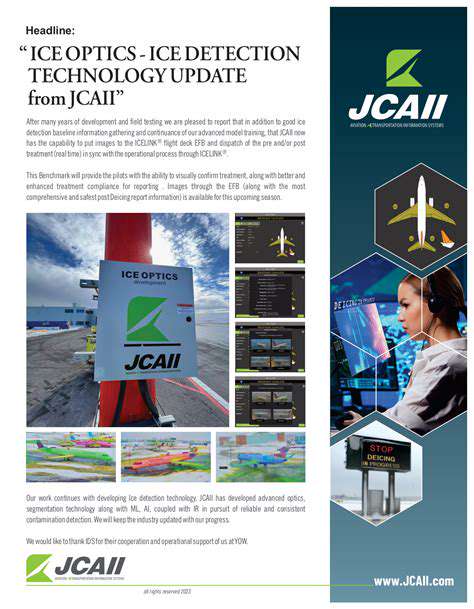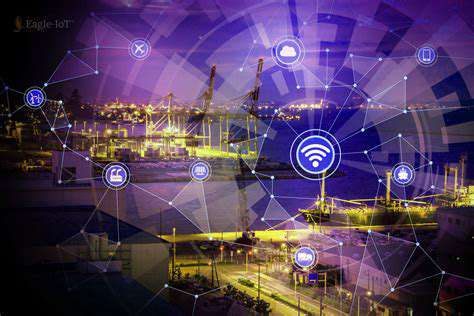The Unique Physiological Impacts of Microgravity
Adaptation to Weightlessness
Microgravity, the near-absence of gravity experienced in space, presents a unique physiological challenge to the human body. This lack of weight-bearing forces leads to a cascade of adaptations, some of which are beneficial for short-duration missions but can pose significant health risks for longer stays in space. The body begins to lose bone density rapidly, and muscles weaken due to reduced use. These effects are primarily attributed to the reduced stress on musculoskeletal tissues, which are normally stimulated by gravity to maintain strength and density. Understanding these initial physiological responses is crucial for developing countermeasures to mitigate the negative impacts of extended spaceflight.
Fluid shifts are another notable effect. Blood volume redistribution occurs, with a greater concentration of blood pooling in the upper body. This can lead to orthostatic intolerance, a condition characterized by dizziness, lightheadedness, and even fainting when standing up. Furthermore, changes in the cardiovascular system, including a decrease in heart size and stroke volume, contribute to the overall physiological shift. These adjustments highlight the profound impact of microgravity on the human circulatory system and the need for rigorous monitoring and countermeasures during space missions.
Cardiovascular and Metabolic Changes
The cardiovascular system undergoes significant alterations in response to microgravity. The heart, no longer required to pump blood against the force of gravity, gradually reduces its size and stroke volume. This adaptation, while seemingly beneficial in the short term, can lead to a decreased ability to maintain adequate blood pressure and circulation when returning to Earth's gravity. The body's metabolic rate also shifts, with reduced energy expenditure and changes in hormone levels that regulate appetite and metabolism. This metabolic shift has implications for nutritional planning and the management of weight and body composition during space missions.
Furthermore, changes in the body's fluid balance are evident. Fluid shifts towards the upper body can lead to edema and other issues. The impact of these changes on the body's overall function and well-being needs careful consideration and comprehensive research. Effective strategies for mitigating these effects during space travel are critical for the success of long-duration space missions and the safety of astronauts.
The complex interplay of these cardiovascular and metabolic changes underscores the multifaceted nature of space medicine challenges. Developing effective countermeasures and monitoring protocols is essential for ensuring astronaut health and safety during extended space missions. Ongoing research into these physiological impacts will continue to shape our understanding of the human body's response to the unique environment of space.
Nutritional Considerations in Spaceflight

Dietary Needs in Spaceflight
Astronauts face unique nutritional challenges during space missions, requiring specialized diets to support their physical and mental well-being. Maintaining optimal health and performance in microgravity environments demands careful consideration of macronutrients, micronutrients, and hydration. Meeting these needs is crucial for preserving muscle mass, supporting immune function, and preventing the development of various health issues that can arise from prolonged space travel, such as bone loss and cardiovascular strain.
The nutritional requirements for astronauts are significantly different from those of individuals on Earth. The reduced physical activity and altered physiological responses to microgravity necessitate adjustments in the types and amounts of nutrients consumed. This necessitates sophisticated planning and implementation of dietary strategies to ensure adequate nutrient intake throughout the mission.
Macronutrient Requirements
Macronutrients, including carbohydrates, proteins, and fats, are essential for providing energy and building tissues. A balanced intake of these macronutrients is vital for sustaining energy levels, supporting muscle function, and promoting overall health during space missions. The specific ratios of macronutrients may need to be adjusted based on the duration and intensity of the mission, as well as the individual needs of the astronaut.
Precisely calibrated intake of carbohydrates for energy production, and proteins for muscle repair and growth, is critical. Adequate fat intake is also essential for hormone production and nutrient absorption. Proper macronutrient management contributes significantly to astronaut performance and well-being.
Micronutrient Importance
Micronutrients, including vitamins and minerals, play crucial roles in various bodily functions. Their deficiency can lead to a cascade of health problems impacting overall mission success. Ensuring an adequate intake of these essential micronutrients is paramount to maintaining immune function, supporting metabolic processes, and preventing deficiencies that could compromise astronaut health.
Specific micronutrients, such as vitamin D and calcium, are particularly important for bone health, which is negatively impacted by prolonged periods of reduced gravity. Dietary strategies must include foods rich in these micronutrients or supplements where necessary.
Hydration Strategies
Maintaining proper hydration is essential for astronaut health and performance. Dehydration can lead to fatigue, impaired cognitive function, and other health issues. Adequate fluid intake is critical to support cardiovascular function and regulate body temperature in the unique environment of space. Fluid requirements may also need to be carefully managed in conjunction with the consumption of other nutrients to avoid imbalances.
Food Variety and Palatability
Maintaining a varied and palatable diet is crucial for astronaut morale and adherence to nutritional guidelines. A monotonous diet can lead to decreased appetite and nutrient deficiencies. Providing a variety of foods, including familiar favorites, and incorporating culinary considerations in the space diet will enhance the overall experience and promote compliance.
Food Preservation and Storage
Effective food preservation and storage methods are essential for maintaining food quality and safety during long-duration space missions. Space-specific storage and preservation methods must be implemented to prevent spoilage and maintain the nutritional integrity of the food. This necessitates innovative approaches to food packaging and preservation techniques, accounting for the unique conditions of spaceflight.
Waste Management and Recycling
Proper waste management and recycling are crucial for the sustainability of space missions. Efficient waste management systems, including proper disposal of food waste and recycling of components, are essential for maintaining a clean and healthy environment. The nutritional waste generated during missions needs to be dealt with effectively to maintain the cleanliness and health of the spacecraft and reduce the overall mission costs.
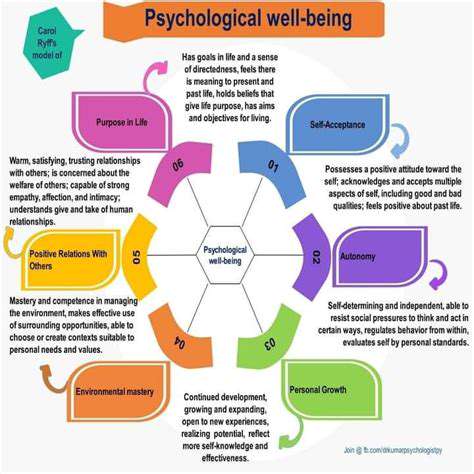
Radiation Exposure and Cancer Risk
Radiation Exposure in Space
Space travel exposes astronauts to significantly higher levels of radiation than experienced on Earth. This increased exposure comes from various sources, including galactic cosmic rays, solar flares, and trapped radiation belts surrounding the Earth. The cumulative effect of this radiation over extended missions can lead to long-term health consequences, potentially impacting cellular structures and increasing the risk of various cancers, particularly those associated with DNA damage.
Mechanisms of Radiation-Induced Cancer
Radiation damages DNA, the genetic material within cells. This damage can lead to mutations and uncontrolled cell growth, which are hallmarks of cancer development. Different types of radiation have varying effects on DNA, and the severity of the damage depends on the dose and duration of exposure. Understanding the specific mechanisms by which radiation induces these mutations is crucial for developing effective countermeasures and risk assessments for space travelers.
Cancer Types Most Vulnerable to Radiation
While various cancers can potentially be linked to radiation exposure, some types appear to be more susceptible than others. Solid tumors, such as leukemia, lymphoma, and certain types of cancers affecting the breast, lung, and thyroid, have demonstrated a correlation with radiation exposure. Research continues to investigate the specific cancer types at higher risk and the degree to which space radiation contributes to their development.
Mitigation Strategies for Radiation Exposure
Several strategies are being explored to mitigate the risk of radiation-induced cancer in space. These include the development of advanced shielding materials, the use of predictive models to assess radiation risk during specific missions, and the implementation of countermeasures targeting DNA repair mechanisms. Understanding the interplay of radiation with the human body is crucial for refining these strategies.
Long-Term Health Effects and Monitoring
The long-term effects of radiation exposure on astronauts are still being studied. Long-duration space missions will require extensive monitoring of astronauts' health, including blood tests, imaging scans, and genetic analysis, to detect any early signs of radiation-induced damage or cancer development. This data is essential for developing accurate predictive models and improving preventative care.
Comparative Studies and Risk Assessment
Comparative studies between astronauts and other groups exposed to high levels of radiation on Earth, such as those working in nuclear facilities, can help assess the specific risks associated with space radiation. These studies, combined with advanced modeling techniques, provide valuable insights into the potential health consequences of space travel and help establish appropriate safety protocols and guidelines for future missions.
Developing Countermeasures and Future Directions
Developing Robust Countermeasures for Space Radiation
Space radiation poses a significant threat to astronaut health, inducing a range of detrimental effects, from acute radiation sickness to long-term health complications like cancer and cardiovascular disease. Developing robust countermeasures is crucial for ensuring the safety and well-being of future space explorers. This requires a multifaceted approach, encompassing shielding technologies, advanced personal protective gear, and innovative strategies for mitigating the biological consequences of radiation exposure.
Research into radiation-resistant materials and shielding designs is paramount. Innovative materials with high atomic numbers, capable of absorbing high-energy particles, need to be explored. Additionally, the integration of advanced personal protective equipment, tailored to specific radiation environments, is essential to safeguard astronauts from harmful radiation during space travel.
Addressing the Impact of Microgravity on Bone Health
Prolonged exposure to microgravity in space leads to significant bone loss, a condition known as osteoporosis. This bone degradation can have detrimental effects on astronauts' musculoskeletal systems, increasing their vulnerability to fractures and other injuries. Understanding the molecular mechanisms underlying bone loss in microgravity is crucial for developing effective countermeasures.
Research efforts must focus on developing strategies to mitigate bone loss, such as exercise regimens specifically designed for the microgravity environment. Furthermore, nutritional interventions, including specialized diets and supplements, may play a vital role in supporting bone health during spaceflight.
Maintaining Cardiovascular Health in Space
The cardiovascular system is significantly affected by the unique conditions of spaceflight, including microgravity and radiation exposure. Changes in blood volume, blood pressure regulation, and the structure and function of the heart and blood vessels can occur. These alterations can lead to cardiovascular complications, potentially impacting astronaut health and mission success.
Developing strategies to maintain cardiovascular health during spaceflight is essential. These may include specific exercise protocols, targeted nutritional approaches, and the use of pharmaceuticals to counteract the effects of microgravity on the cardiovascular system. Continuous monitoring of astronauts' cardiovascular health is also crucial for early detection and intervention.
Preserving Mental Well-being in Isolated Environments
Space missions often involve extended periods of isolation and confinement, which can take a toll on astronaut mental well-being. The psychological impact of isolation, confinement, and the unique stressors of space travel can lead to anxiety, depression, and other mental health concerns. Developing effective strategies to maintain astronaut mental well-being is critical for mission success.
These strategies may include providing astronauts with opportunities for psychological support, promoting social interaction, and implementing psychological interventions to address potential stressors. Moreover, training astronauts in stress management techniques and providing access to resources for mental health support are essential.
Optimizing Nutritional Strategies for Space Missions
Providing astronauts with a balanced and nutritious diet is vital for maintaining their health and performance during long-duration space missions. The nutritional needs of astronauts in space differ significantly from those on Earth, requiring specialized diets to optimize nutrient intake and support various bodily functions.
Research is needed to identify specific nutritional requirements for space missions, and to develop innovative methods for preparing and storing food in space. Furthermore, the development of nutritional supplements and personalized dietary plans can contribute to maintaining optimal health among astronauts.
Advanced Diagnostics and Monitoring Technologies
Developing advanced diagnostic and monitoring technologies is crucial for detecting health issues early and effectively managing them during space missions. These technologies should be portable, reliable, and capable of providing real-time data on astronaut health. Early detection of potential health problems can prevent severe complications and ensure astronaut safety.
Facilitating International Collaboration and Knowledge Sharing
Addressing the challenges of space medicine requires a collaborative approach among international space agencies and research institutions. Knowledge sharing and coordinated research efforts can accelerate the development of effective countermeasures and improve the understanding of the biological effects of spaceflight. Collaboration enables the pooling of resources, expertise, and data, ultimately leading to more comprehensive and effective solutions.

